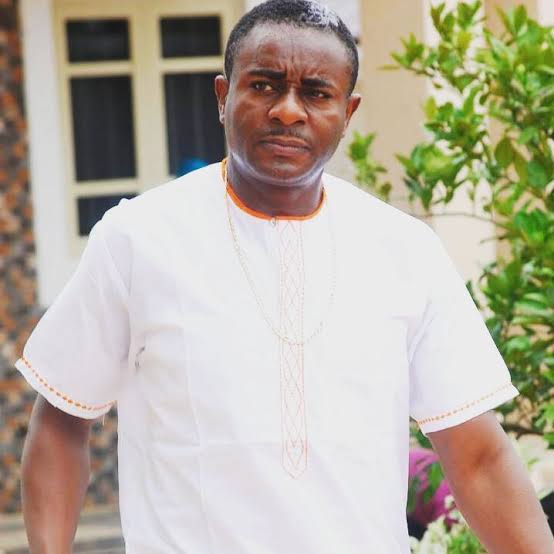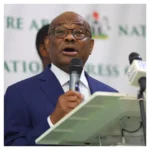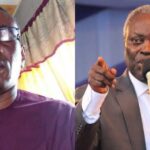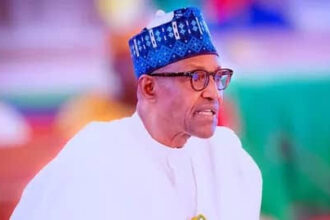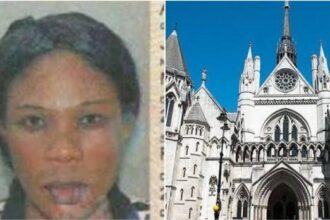In Nollywood, the lights always shine, the cameras roll, and applause often masks a hidden tension. Yet, behind the glamour of movie premieres and the glitter of red carpets, there exists a quieter, more charged arena—the corridors of power within the Actors Guild of Nigeria (AGN). It was here, in the shadows behind the spotlight, that a silent storm brewed between two of the industry’s most formidable figures: Emeka Ike and Segun Arinze.
- The Historical Roots of the Actors Guild
- The Contenders — Emeka Ike and Segun Arinze
- The Election Build-Up — Alliances, Rumors, and the Battle for Influence
- The Rise of a President – Segun Arinze and the 2009 AGN Election
- The Courtroom as a Battlefield – Emeka Ike Strikes
- Ripples Through Nollywood – Aftermath and Legacy
- Segun Arinze Speaks Out
- Lessons from the Storm – Nollywood’s Path Forward
- Closing Thoughts: Beyond the Spotlight – The Enduring Lessons of the AGN Feud
This was not a story of box office battles or screen rivalries; it was a contest of influence, legacy, and legitimacy. Like actors preparing for a climactic scene, both men maneuvered through subtle gestures, whispered alliances, and strategic moves, each aware that every misstep could alter the course of Nollywood’s governance. For those on the outside, it appeared as a simple leadership contest. For those in the inner circles, it was a high-stakes drama where reputation, authority, and ambition collided.
The narrative that would unfold was one of courtroom injunctions, disputed elections, and resignations, but its tension was built long before official letters were signed. Nollywood watched, some silently, others vocally, as this real-life drama exposed the fragile scaffolding of an institution designed to unite actors—only to reveal how easily it could fracture under ambition and dispute.
The question that hung over every conversation, every faction, and every whispered phone call was simple yet heavy: Who had the right, the authority, and the vision to lead the guild forward?
And as history would show, the answer would not be tidy, comfortable, or free of conflict.
The Historical Roots of the Actors Guild
Every stage has its wings, and every story its backstage—a place where the unseen often shapes the outcome more than the spotlight ever could. For Nollywood, that backstage is the Actors Guild of Nigeria (AGN), an institution conceived in 1992 to serve as both a shield and a compass for actors navigating the unpredictable terrain of fame, contracts, and creative influence.
The guild’s founding was a response to chaos disguised as opportunity. In an industry where a lead role could vanish overnight, and where disputes over royalties or contracts were commonplace, AGN promised structure—a place where actors could negotiate not just wages, but dignity, respect, and collective voice. The early years were defined by tentative experiments in leadership, with figures such as Olu Jacobs, Pete Edochie, and Chinwe Owoh acting as stabilizers, mediating tensions between emerging talent and production houses.
Yet, even as the guild provided a framework for unity, cracks began to appear. Nollywood was expanding rapidly, moving from celluloid reels to digital screens, attracting international attention and new investments. Leadership within AGN became more than advocacy; it became influence. Who led the guild could now shape casting decisions, negotiate for royalties, and even control the narrative of Nollywood’s public image. Elections, once procedural, grew contentious. Factions formed silently, loyalties shifted quietly, and the delicate balance of authority began to tilt toward personalities rather than policies.
By the late 2000s, the stage was set for a confrontation that would expose both the promise and fragility of the guild. Nollywood’s growth meant higher stakes, and in these stakes, actors no longer competed just on screen—they competed in the halls of governance, where ambition, reputation, and legacy intertwined. Into this evolving arena stepped Emeka Ike and Segun Arinze, two forces whose charisma, talent, and influence would soon ignite one of the most notable leadership battles in AGN history.
The guild, intended as a sanctuary for collective voice, was becoming a battlefield where every handshake, endorsement, and whispered conversation carried the weight of consequence. And in the quiet corridors where decisions were made, Nollywood watched, waiting for the first spark that would turn ambition into confrontation.
The Contenders — Emeka Ike and Segun Arinze
In Nollywood, fame is both a currency and a lens—it magnifies achievements but also exposes every flaw. By the time the leadership contest erupted, Emeka Ike and Segun Arinze were more than actors; they were symbols of divergent approaches to power, influence, and legacy.
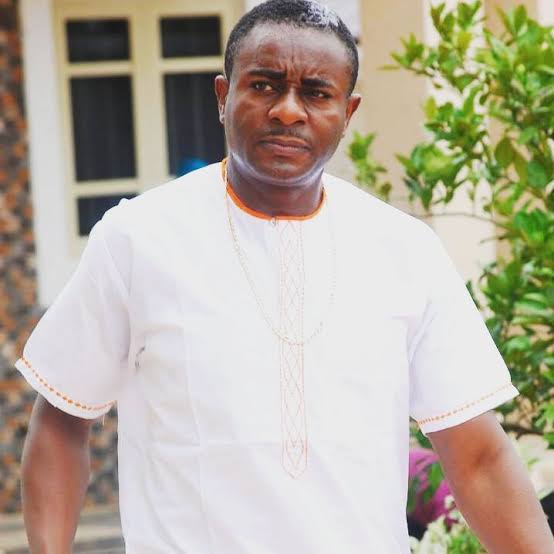
Emeka Ike was a storm in human form: bold, outspoken, and impossible to ignore. Known for blockbuster roles in films like Snake Girl and Deadly Affair , Ike had spent decades crafting a persona that extended beyond the screen.
His supporters admired him for courage and audacity, seeing in him a leader who could challenge entrenched bureaucracy and push the guild toward reform. Yet, this very boldness also drew criticism. Detractors whispered of impulsiveness and a willingness to confront rivals head-on, even at the expense of diplomacy.
Segun Arinze, by contrast, was a river flowing quietly but inexorably. His roles in films like Silent Night and Mark of The Beast had cemented his presence in Nollywood, but his influence extended beyond acting. Colleagues described him as strategic, measured, and deliberate—an actor whose leadership style was less about spectacle and more about calculated authority.
Where Ike rallied crowds, Arinze cultivated loyalty, often through private consultations and carefully timed endorsements. His approach signaled stability, experience, and procedural integrity.
Their contrasting styles became a microcosm of the election itself. Ike represented visibility and populist appeal—an actor who thrived in the limelight and could energize the grassroots membership. Arinze represented credibility and strategic governance, appealing to those who valued order, experience, and careful navigation of institutional rules.
Beneath the surface, personal histories and unspoken rivalries added tension. Past collaborations, disagreements, and competing visions for the guild created a powder keg where even small actions could ignite controversy. Nollywood insiders knew that this contest was about more than votes—it was about legacy, perception, and the assertion of authority within an industry where personal influence often shapes institutional fate.
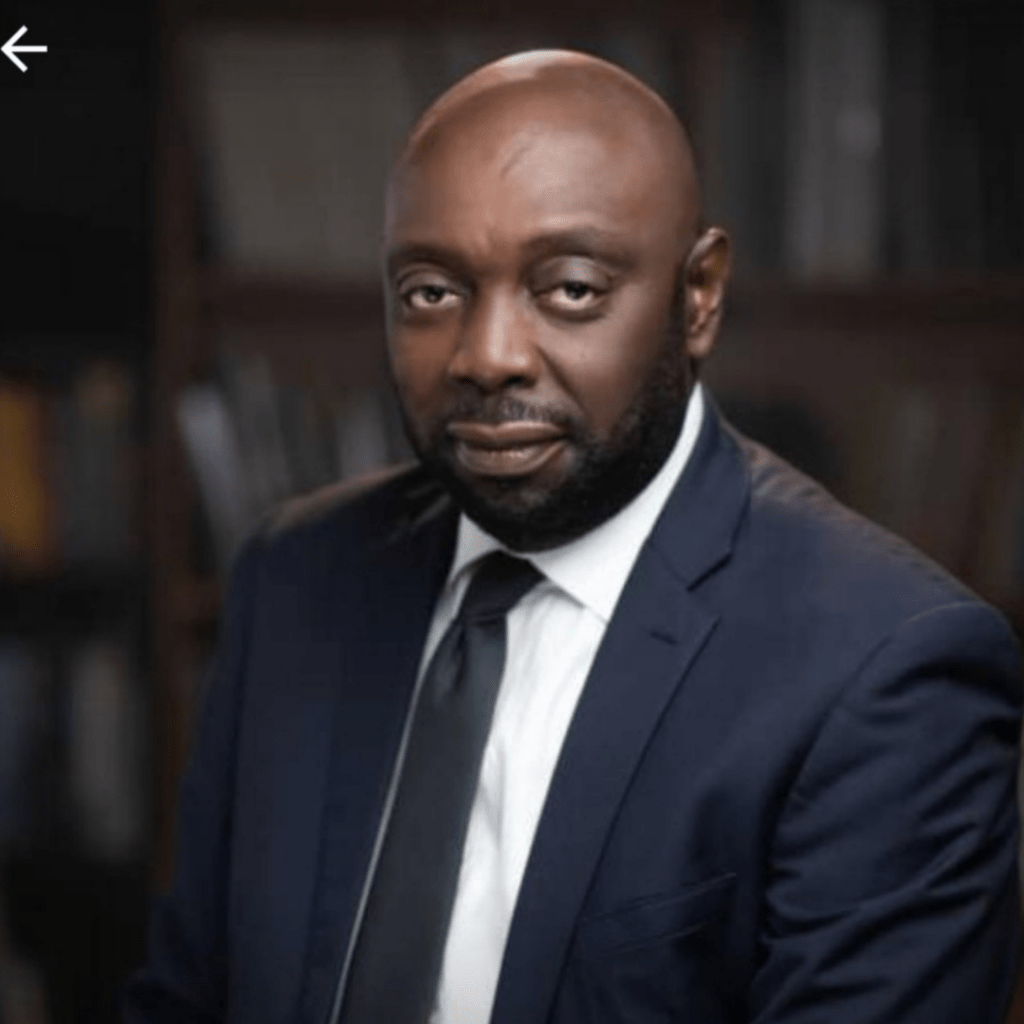
As whispers of alliances, endorsements, and factional loyalties circulated, it became clear that this election would redefine guild politics. What unfolded between Ike and Arinze would not just determine who led AGN—it would reveal the fragile architecture of power and trust within Nollywood itself.
The Election Build-Up — Alliances, Rumors, and the Battle for Influence
Long before ballots were cast, the Actors Guild election had already transformed into a battlefield of influence, whispers, and subtle power plays. Nollywood, a world accustomed to drama on-screen, was now witnessing a drama off-screen—where every meeting, handshake, and conversation carried weight, and where loyalty could shift as quickly as a camera angle.
Emeka Ike and Segun Arinze approached the contest like two generals surveying a battlefield. Ike’s strategy thrived on visibility. He attended gatherings, met actors across guild chapters, and ensured his presence was felt in both formal events and informal circles. His message was simple yet powerful: the guild needed leadership that would act boldly, challenge complacency, and give actors a voice that could not be ignored. Supporters amplified this through emerging social media platforms, turning public perception into a tool as potent as any formal vote.
Arinze, ever the strategist, operated quietly but effectively. He focused on behind-the-scenes consultations, cultivating trust among veteran actors, guild executives, and decision-makers who held the keys to procedural legitimacy. Where Ike rallied crowds, Arinze built alliances—layered, deliberate, and almost imperceptible to those outside his inner circle. Each endorsement he secured, each advisory consultation, became a subtle signal of influence that could ripple across the guild’s fractured landscape.
Rumors and whispers added fuel to the fire. Allegations of irregularities, speculation about endorsements, and claims of intimidation circulated rapidly. For many actors, the election became as much about navigating perception as about casting a vote. Every conversation was scrutinized; every gesture could be interpreted as a sign of strength or weakness. In the weeks leading to the election, Nollywood insiders noted that factional lines had hardened, with allegiances forming around personalities rather than policies.
This period of build-up revealed more than strategic differences—it exposed the guild’s fault lines. The very structure intended to unify actors now reflected their divisions, ambitions, and competing visions for the industry. It was clear that when election day arrived, it would not simply be a tally of votes but a confrontation of ideals, approaches, and personal legacies.
By the eve of campaigning, Nollywood had already witnessed a high-stakes drama of preparation, negotiation, and speculation. What appeared externally as a procedural election had, in reality, become a mirror of ambition and influence, with every whisper, endorsement, and rumor shaping the outcome long before a single vote was counted.
The Rise of a President – Segun Arinze and the 2009 AGN Election
Segun emerged as president-elect, symbolizing continuity, discipline, and order in an industry often criticized for its lack of formal structure. Yet, the ascent to leadership was never merely a procedural exercise. In Nollywood, influence is rarely uncontested, and every step toward power is scrutinized, challenged, and measured against the ambitions of others.
Enter Emeka Ike. To him, Segun’s election was not just a political disappointment—it was a challenge to his standing within the guild. Emeka had long been a prominent figure in AGN circles, and the presidency represented not merely a title, but a platform to shape the future of Nigeria’s actors. The seeds of rivalry were sown almost immediately, with Emeka questioning the legitimacy of Segun’s mandate and quietly mobilizing support among members who shared his concerns.
Though the election followed the guild’s established procedures, allegations of irregularities surfaced—claims that would later become the foundation for legal action. What should have been a celebration of democratic process instead became the first act in a drama of suspicion and tension. Segun, aware of the delicate dynamics, sought to assert his authority with measured diplomacy, emphasizing order and continuity while navigating the growing discontent.
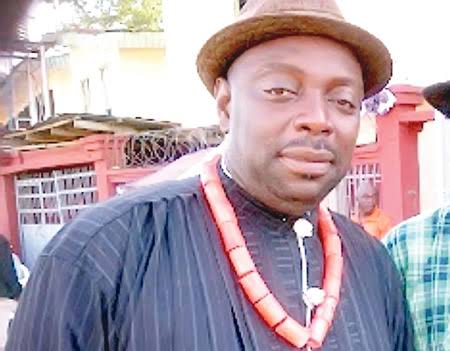
By the close of 2009, the stage was set. Segun Arinze had assumed the presidency, but the shadows of dissent were already forming. In Nollywood, as in life, leadership is never absolute; it is a continuous negotiation of trust, legitimacy, and influence. The battle lines between Segun and Emeka had been drawn, and what began as a contested election was about to evolve into a saga that would test the very fabric of the Actors Guild of Nigeria.
The Courtroom as a Battlefield – Emeka Ike Strikes
By 2011, the simmering tensions within the Actors Guild of Nigeria had grown impossible to ignore. What began as quiet murmurs of discontent had escalated into a confrontation that would play out far from the cameras, in the sober halls of the courts. Emeka Ike, refusing to accept Segun Arinze’s presidency as legitimate, turned to legal channels, wielding the law as a weapon to challenge the guild’s leadership.
The court injunction he secured to halt the guild’s general elections was more than a technical maneuver—it was a declaration of intent. Emeka argued that the process that brought Segun to power was flawed, marred by irregularities that threatened the integrity of the guild. Every procedural point he highlighted, every clause cited in court, became a step in a strategy designed to question the foundation of Segun’s authority. For Nollywood observers, the courtroom drama was a spectacle rivaling any on-screen performance: the stakes were high, the lines were drawn, and the outcome uncertain.
Segun, meanwhile, faced an unprecedented test of leadership. Beyond defending the legality of his presidency, he had to maintain his credibility, reassure guild members, and project stability amid growing unrest. The media spotlight added pressure, turning internal disputes into public theater, where every misstep could be amplified and every decision scrutinized.
The crisis reached its breaking point with the botched AGN election in Benin City on April 28, 2012. Intended to be a routine electoral process, it descended into chaos, validating many of Emeka Ike’s claims in the eyes of supporters and critics alike. Reports of irregularities and confusion left the guild teetering on the edge of dysfunction, and Nollywood watched as the carefully constructed façade of leadership cracked under pressure.
Segun’s resignation in early May 2012 marked the conclusion of this turbulent chapter. In his resignation letter, he noted that while his tenure had officially ended in December 2011, he had remained in office to ensure a smooth transition through a free and fair election. Yet, the saga of conflict, legal challenges, and contested legitimacy would linger in Nollywood’s collective memory—a reminder that leadership, even in an industry built on art and celebrity, is tested as much by ambition and rivalry as by talent.
The Emeka Ike–Segun Arinze battle had transformed the guild into a high-stakes arena where rules, personalities, and principles collided—a drama that underscored how ambition and law intersect in the corridors of Nollywood’s power.
Ripples Through Nollywood – Aftermath and Legacy
When Segun Arinze stepped down in May 2012, the storm that had engulfed the Actors Guild of Nigeria left behind more than headlines; it left a transformed landscape. The guild, once a symbol of unity for actors, now bore the marks of discord, legal battles, and contested authority. Yet, in the chaos lay lessons that would shape Nollywood’s approach to governance for years to come.
The feud revealed the fragility of structures within the guild. Procedures once taken for granted—the electoral process, the legitimacy of mandates, the enforcement of statutes—were now scrutinized and debated. Actors and industry stakeholders realized that fame alone could not command respect in leadership; transparency and adherence to process were equally critical. Emeka Ike’s legal challenge, controversial though it was, highlighted that even established stars could be held accountable, and that the guild’s processes needed to be beyond reproach.
Segun Arinze’s response to the crisis reinforced the importance of principle in leadership. By resigning to ensure a smooth transition, he demonstrated that authority is measured not only by holding office, but by the willingness to protect institutional integrity above personal ambition. His tenure, though marred by conflict, became a reference point for measured leadership amid crisis.
The broader Nollywood community also absorbed the lessons. Actors became more engaged in guild affairs, understanding that their collective voice could influence leadership and policy. Producers, directors, and other industry stakeholders recognized that stability in the guild was essential to maintaining professionalism and credibility within an industry often celebrated for creativity but challenged by organizational fragility.
Ultimately, the Emeka Ike–Segun Arinze saga left an indelible imprint: it was a story of ambition clashing with legitimacy, of governance tested under pressure, and of an industry learning to reconcile fame with responsibility. Nollywood’s most glamorous stars had become participants in a real-life drama that underscored the human and structural stakes behind leadership—a drama as compelling as any blockbuster, but with consequences that reached far beyond the silver screen.
Segun Arinze Speaks Out
In a rare and candid interview in 2025, Arinze finally pulled back the curtain, revealed that the feud had been less about clashing egos and more about the choreography of leadership within the Actors Guild of Nigeria (AGN).
He painted the conflict as a dance of visions—two powerful currents attempting to navigate the same river, sometimes colliding, sometimes flowing in parallel, but never meant to capsize the entire vessel. “Hate is a burden. Travel light,” Arinze reflected, his words like a gentle tide washing away the sediment of years-long grudges.
Now, the curtain has lifted, and the actors meet not with the tension of rivalry but with the laughter of shared memories. Reconciliation, Arinze explained, is a spotlight that illuminates more than their personal journey—it casts a warm glow over Nollywood itself, reminding the industry that even the fiercest storms eventually yield to calm seas.
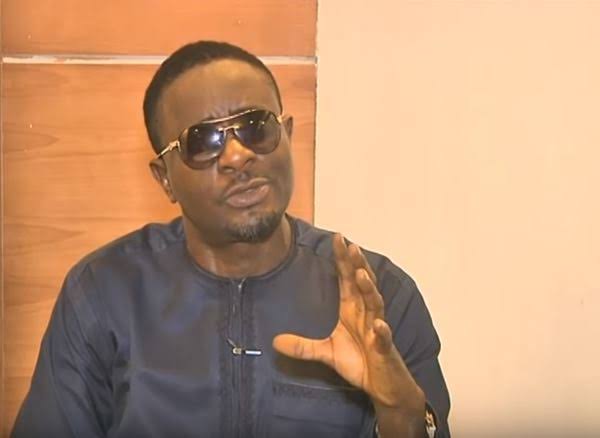
Fans and colleagues welcomed this thaw, recognizing that when the storm passes, the stage is larger, the story richer, and the actors freer to perform together once more.
Lessons from the Storm – Nollywood’s Path Forward
Every storm leaves a trace, and the Emeka Ike–Segun Arinze feud left more than scars; it left clarity. The guild’s turbulence exposed the delicate interplay between fame, authority, and institutional integrity. It showed that in Nollywood, as in any industry, leadership is not simply about star power—it is about accountability, process, and the courage to act for the collective good.
One of the most enduring lessons was the cost of unresolved disputes. The guild’s months of uncertainty demonstrated that even the brightest stars can be overshadowed by conflicts if governance is ignored. Emeka Ike’s legal action, controversial though it was, underscored that transparency and adherence to procedure are essential. It reminded the industry that leadership can and should be challenged when legitimacy is in question.
Segun Arinze’s decision to step down voluntarily, despite personal pressures and public scrutiny, offered a contrasting lesson: that principled leadership entails putting the institution above self-interest. By ensuring a transition as smooth as possible, he preserved the guild’s credibility and modeled a standard of governance rare in industries driven by celebrity.
For the guild, the crisis prompted reforms and introspection. Electoral procedures were examined, accountability mechanisms strengthened, and members became more invested in internal governance. Actors understood that their collective voice carried weight, and that their engagement was critical to shaping an organization that could withstand future challenges.
For Nollywood at large, the saga became a benchmark. It illuminated the balance between artistry and administration, ambition and responsibility. The story of Emeka Ike and Segun Arinze is now a reference point for leadership disputes, a cautionary tale about the stakes of power, and a testament to the resilience of an industry capable of learning from its turbulence.
Ultimately, the feud is more than a chapter in guild history; it is a mirror reflecting Nollywood’s growing pains, a study of human ambition and institutional necessity, and a narrative whose lessons resonate far beyond the boardroom. In the end, Nollywood learned that the real drama often unfolds behind the spotlight—and that the true measure of leadership is not the applause it commands, but the integrity it preserves.
Closing Thoughts: Beyond the Spotlight – The Enduring Lessons of the AGN Feud
The story of Emeka Ike and Segun Arinze is more than a chapter in Nollywood’s history; it is a prism through which the industry’s complexities come into focus. It reveals how ambition, talent, and influence intersect with governance, how personal rivalries can ripple through institution and how the pursuit of legitimacy often comes at the cost of public drama.
Segun’s measured resignation and Emeka’s uncompromising legal challenge together illuminate the dual faces of leadership: the courage to step aside for the greater good, and the resolve to hold power accountable. Their feud transformed the Actors Guild of Nigeria, prompting reforms, inspiring greater member engagement, and serving as a cautionary tale for the delicate balance between celebrity and responsibility.
In the end, Nollywood learned a truth that resonates far beyond its studios and film sets: real drama often happens behind the cameras, and the true test of leadership lies not in applause, but in the integrity with which it is exercised. The AGN saga, with all its tension, legal battles, and resignations, is now woven into the fabric of the industry—a lasting reminder that power, ambition, and accountability must coexist if Nollywood is to thrive beyond the spotlight.

